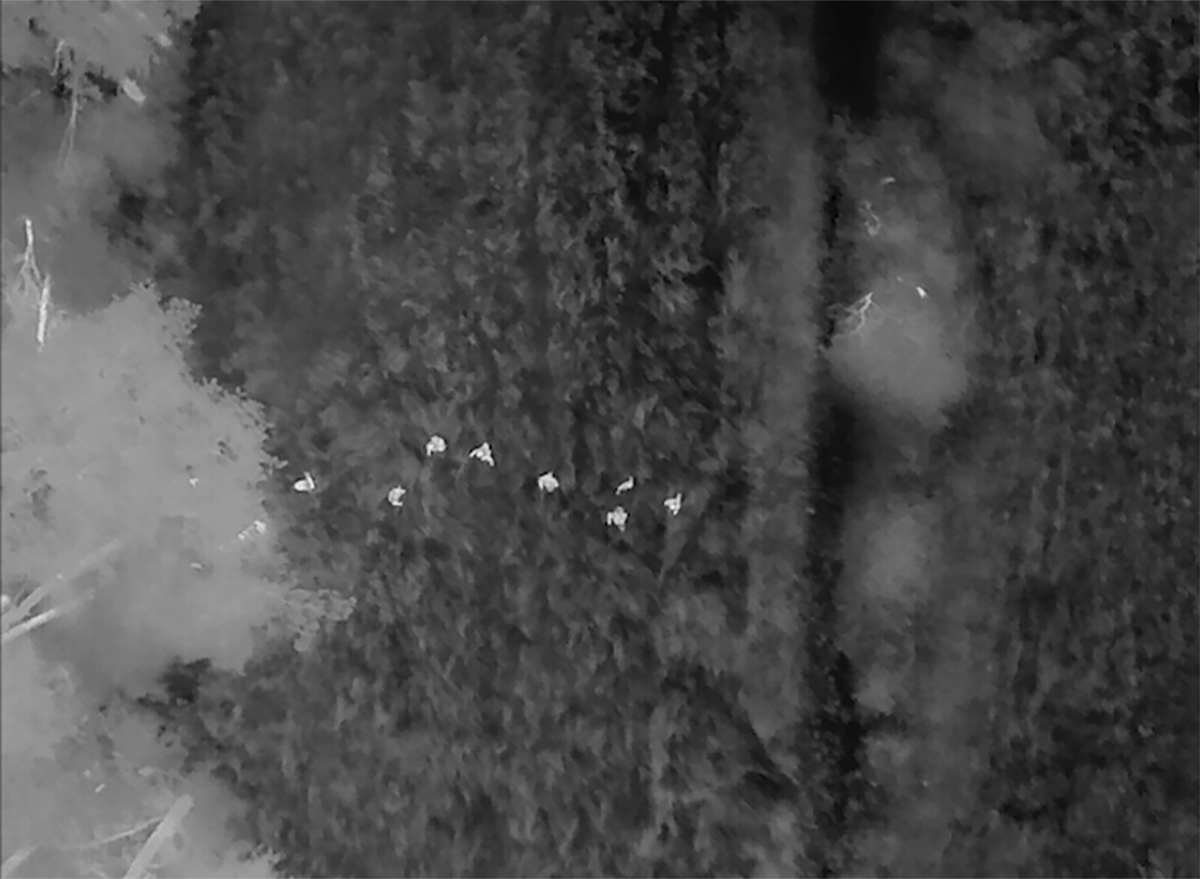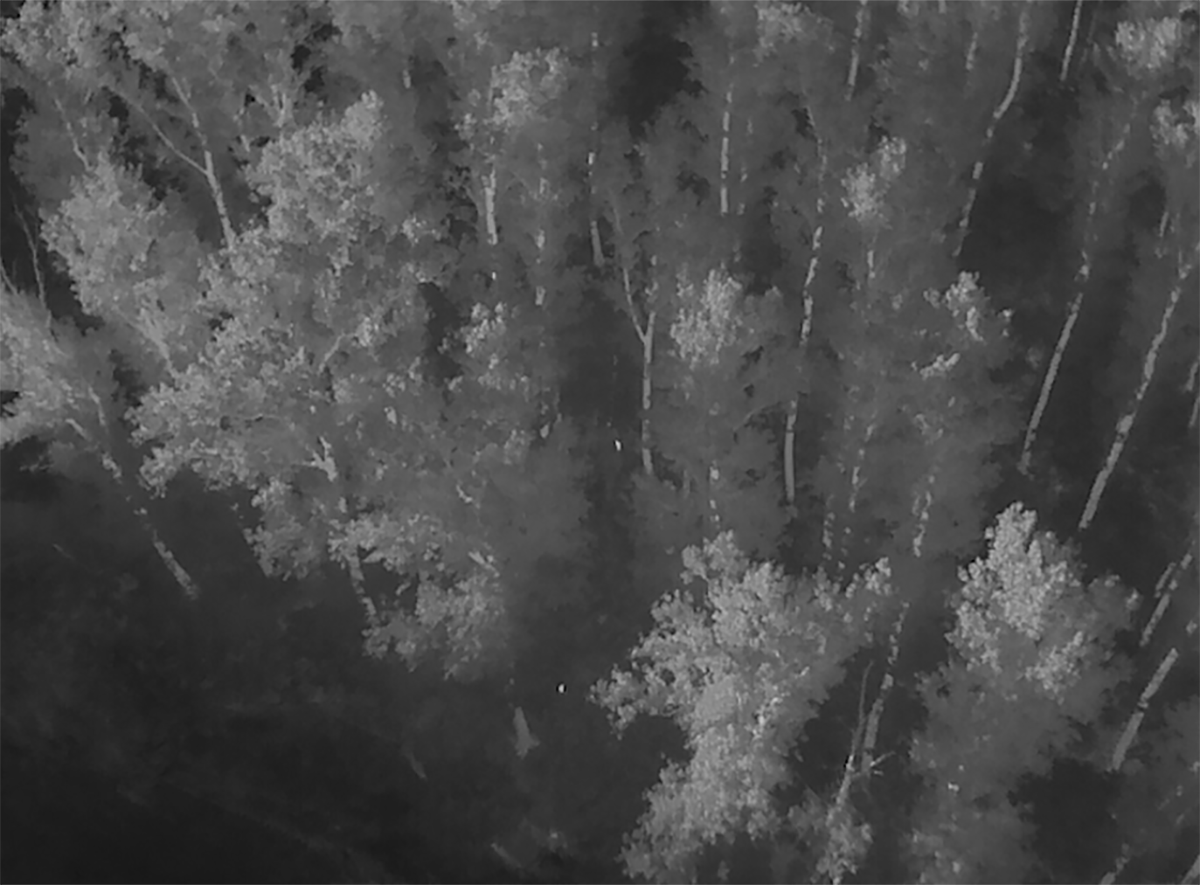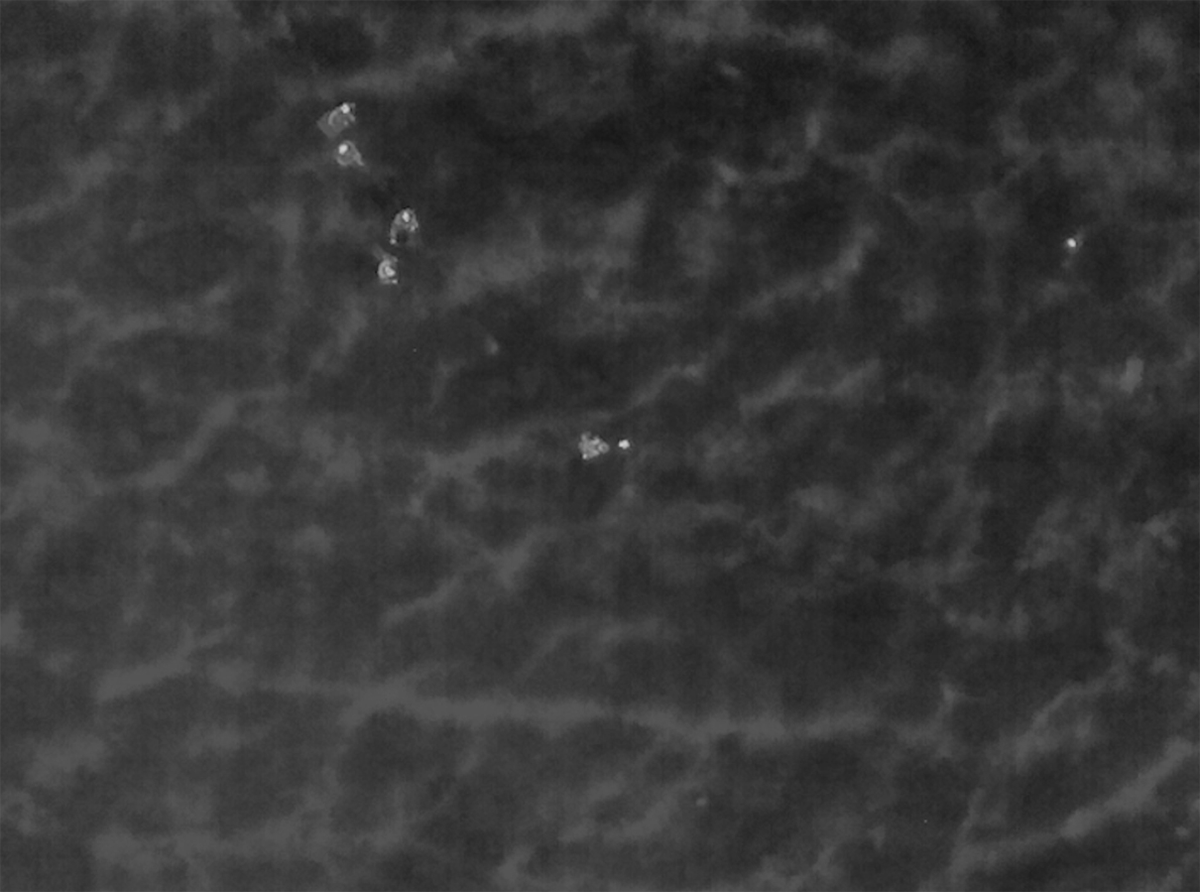Our perception of the world represents the basis of our self-understanding. It is made up of sensory impressions, accepted agreements and the constructed realities resulting from them.
Inventing photography enabled the development of numerous methods for making the invisible visibe in different contexts.
One of them can be found in the thermal image. Technical innovations open up possibilities to expand our field of vision, both positively and negatively. The present project examines the relationship between humans and their environment and explores how far technology can create a bridge between different species. Thus, it is interested in the positive potential of such an connection.
Thematically the focus is on rescuing fawns,a task of species protection that is increasingly gaining public awareness. Every year around one hundred thousand fawns die a cruel mowing death in Germany. The reason for this is that in the first weeks of life they are equipped with the so called "pushing instinct", according to which they do not flee in danger but try to protect themselves by ducking. Causing the problem is the intensive, efficieny-oriented agriculture and the pretermed, ergo vulnerable timing of the mowing. Hidden in the high grass, the animals are invisible.
Teams of fawn rescuers are establishing themselves throughout Germany to find and secure them using drones equipped with thermal imaging cameras at night, when the cold-warm-contrast is at its highest and berfore the meadow is mowed. The video work is dedicated to the use-oriented Found Footage in the gleaning, in the resumption of what is actually no longer usable. It considers its aesthetic quality and thus, in the broadest sense, also contains an implicit ecological mandate through the visualisation in artistic form.
Intended is not a purely documentary processing of the material or a narrative, but rather an abstract form that is based on landscape painting. Using perception-enhancing technologies offers many possibilities - it is up to us how we want to use them.





